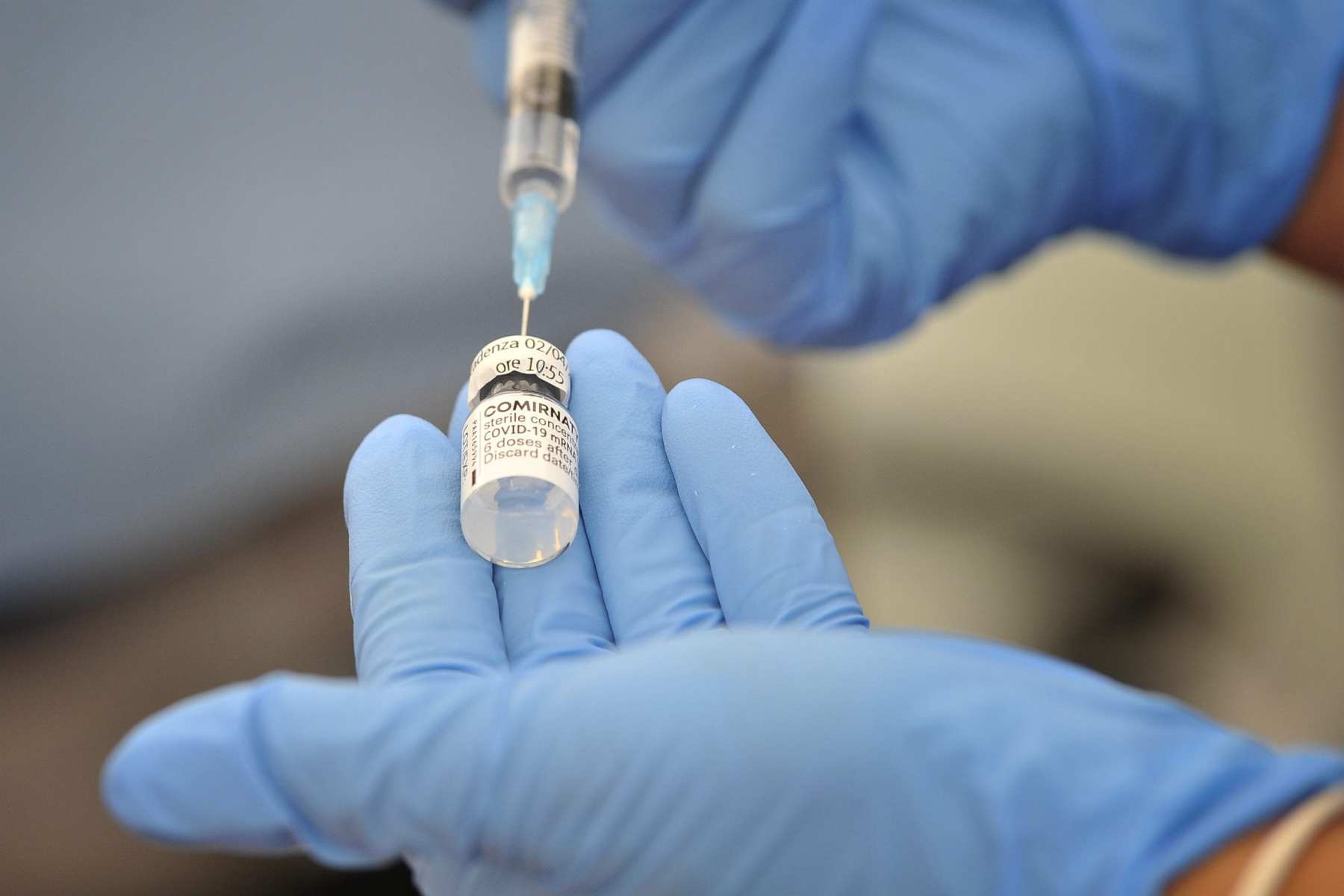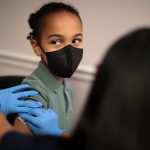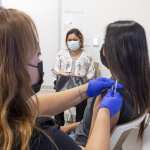Nearly one-third of mothers said their children will not get coronavirus vaccines once they are approved for them, despite recommendations from public health experts, according to a new study.
Children 12 and older will not be eligible for a vaccine until later this summer at the earliest, and trials for children younger than 12 have only recently begun. On Wednesday, Pfizer announced no symptomatic infections were found among children aged 12 to 15 after a recent clinical trial. About 3.5 million American children have been infected with COVID-19, and fewer than 280 children have died, according to the American Academy of Pediatrics and the Children’s Hospital Association. Though hospitalization, severe illness and death associated with the virus are rare among children — who account for more than 20 percent of the population — most health authorities agree that vaccinating children will help the country reach herd immunity.
Researchers Jessica McCrory Calarco and Elizabeth Anderson combined data from a nationally representative survey of nearly 2,000 U.S. parents and in-depth interviews with a racially diverse group of mothers and found that mothers were more reluctant than fathers to get their children immunized against COVID-19. Their study has not yet been peer-reviewed.
“We’ve been talking to this same group of moms since 2018,” said Calarco, co-author of the study and an associate professor of sociology at Indiana University. “We expected mothers to be somewhat more hesitant when it comes to vaccines, but we were surprised by the stark patterns along racial and political lines.”
The study found that White Republican mothers were more likely to raise concerns about vaccines and potential vaccine requirements for school attendance. More than half of White Republican and Republican-leaning mothers in the survey said they were against required COVID vaccinations.
The spread of politicized disinformation interspersed with accurate information has resulted in confusion and a wide variety of sentiments surrounding vaccines. Many mothers said they feel more in control of known risks surrounding COVID-19, as opposed to unknown risks surrounding the vaccine. The American Academy of Pediatrics said vaccine distribution and access — when approved — should be supported for all children and adolescents, claiming vaccines are “key, safe mechanisms.”
Because of the U.S.’s “individualistic and consumeristic medical system,” parents face intense pressure and take personal responsibility for the health of their families, Calarco said. A 2014 Kaiser Family Foundation national survey found that about 75 percent of mothers — compared with 20 percent of fathers — said they were in charge of choosing their children’s medical providers, taking them to appointments and following through with care.
“When we see a kid misbehaving at the grocery store, the default assumption is that the mother did something wrong,” Calarco said. “There’s so much mother blame, and that culture holds mothers accountable and blames them for any problems of their children. They’re expected to be hyper-vigilant.”
In addition to the national survey, the study included in-depth interviews with 64 mothers in Indiana. Each woman was asked the same questions about school-required immunizations, mask mandates and their attitudes about COVID-19 vaccines.
There’s so much mother blame.
Jessica McCrory Calarco, associate professor of sociology at Indiana University
One woman, who identified as White, Republican and the mother of a toddler and preschooler, said in her interview that she strongly opposed both COVID vaccines and mask mandates for children. She believed the vaccine would do more harm than good and expressed that the fear and anxiety caused by masks was more threatening to health than the virus itself.
“I don’t think the risk is worth it unless the medical facility or whoever does all the testing and everything was able to prove a hundred percent that there’s absolutely no way that there’s any kind of vaccine damage that can happen with this,” one mother said. “I don’t really see that happening or being likely.”
Another participant, who identified herself as White, Republican, pregnant and the mother of a toddler and second grader, said she was opposed to COVID-19 vaccines for children but supported masks. As the primary parent responsible for health decision-making, she believed she could combat the serious consequences of COVID-19 by strengthening her children’s immune systems.
“I still consider nature has the best abilities to take care of us, whether people want to admit it or not,” another mother said. “There is a method to Mother Nature’s madness and that is sorting out the weakest in every species in every herd that’s on Earth. And a lot of it just goes to show it’s survival of the fittest.”
Calarco said a cultural shift needs to happen.
“It’s important to not simply ridicule mothers for having concerns,” Calarco said. “I think that feeds into the kind of ‘mother blame’ that has led mothers to be the ones more concerned with vaccines in the first place. … We need to think about children’s health as a collective responsibility.”
The way physicians engage with mothers can exacerbate the way they are judged or blamed for what might be out of their control, Calarco said, pointing to racist and classist inequalities in the medical system. For example, in the mid-1900s, milk formula companies targeted and persuaded Black women that formula was healthier than breast milk. Decades later, Black women are still less likely to breastfeed than their White or Latinx counterparts. Breastfeeding has several health benefits for children, including less risk of developing asthma, obesity and sudden infant death syndrome, according to the surgeon general.
Dr. Emily Penner, assistant professor in the school of education at University of California-Irvine, said public health officials can use Calarco’s study to inform what groups need to be reached when it comes to positive and accurate recommendations.
“There is a layer of guilt and pressure on parents and moms in particular,” Penner said. “There’s pressure to maintain an image, getting everything right and have well-behaved, healthy and cooperative kids. … That goes for parents who are both on board with public health recommendations and those who aren’t. We need lots of different positive messaging to get people on board.”
We need lots of different positive messaging to get people on board.
Dr. Emily Penner, assistant professor in the school of education at University of California-Irvine
Jennifer Reich, a professor of sociology at University of Colorado-Denver and author of “Calling the Shots: Why Parents Reject Vaccines,” said it’s important to remember that mothers don’t view all vaccines as the same. She found that mothers usually engage in sophisticated ways of weighing perceived risks of infection against risks of vaccination.
A 2017 Pew Research survey found that parents of young children, in particular, were more concerned about the risks of vaccines than the general public.
Calarco’s study is one of the first to directly examine gendered patterns of opposition to public health initiatives. Reich said the research deals with mothers and fathers’ intentions for a hypothetical vaccine, and it’s unclear whether the study’s results will be predictive of what actually happens once there is a vaccine available for children. As more information becomes available, she said, parents will keep reassessing their decision.
“There’s always the risk of labeling vaccine hesitancy as disinformation,” Reich said. “It feels counterintuitive that someone would reject something that seems to be lifesaving. But some of the things parents are pointing to are not misinformation but their perception of the risks and benefits.”
Reich said there’s at least one change that the pandemic brought that she hopes stays: two-directional communication. Pediatricians, school officials and public health authorities can’t tell people what to do and expect to be obeyed without questions.
“When people have the opportunity to raise questions and ask about the safety and longevity of side effects, they often change their minds,” Reich said.






